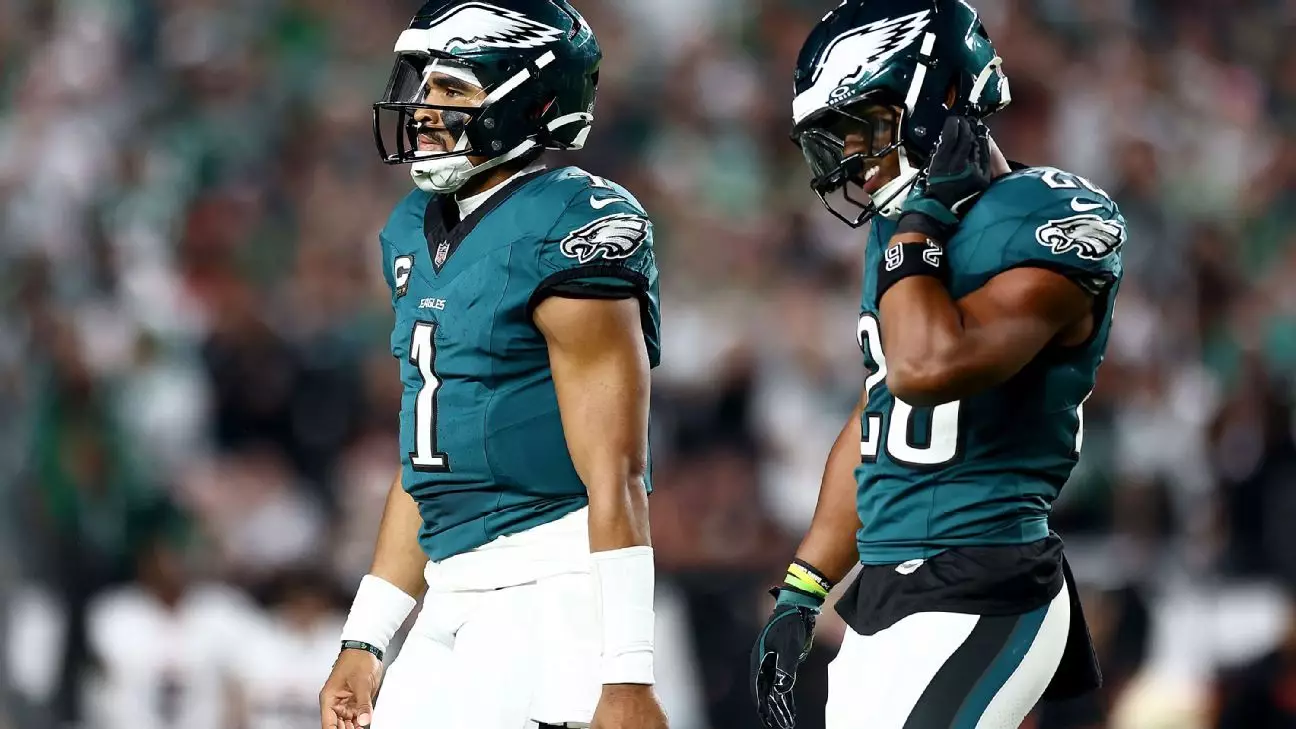In a tightly contested battle on a Monday night, the Philadelphia Eagles found themselves on the losing end of a nail-biter against the Atlanta Falcons, with a final score of 22-21. The game, a reflection of the highs and lows that characterize the NFL, was marked by one pivotal moment that will undoubtedly haunt Eagles running back Saquon Barkley for the foreseeable future. With under two minutes left on the clock and a lead of three points, Barkley found himself in a position that could have sealed the victory for his team. Instead, a missed catch led to a sequence of events that shifted the momentum of the game dramatically.
Following the heartbreaking loss, Barkley expressed a profound sense of accountability, stating, “I let my team down today.” This sentiment highlights a much larger issue in professional sports: the weight of responsibility that players carry, especially in high-stakes moments. With the game on the line, Barkley recognized that his failure to execute meant more than just a missed opportunity; it placed unnecessary pressure on the Eagles’ defense, which subsequently had to deal with a critical drive from the Falcons. His reflection is significant, as it showcases the commitment of an athlete who understands their role within a team dynamic.
The Critical Decision-Making
The Eagles, nursing their slim lead, faced a crucial third-down opportunity at the Falcons’ 10-yard line. Quarterback Jalen Hurts opted to throw a pass to Barkley rather than running the ball—a decision that ultimately backfired. Barkley, momentarily open, was unable to secure the catch, which subsequently led the Eagles to kick a field goal rather than trying for a touchdown. Coach Nick Sirianni’s rationale for the pass play was rooted in strategies aimed at outmaneuvering the defense, which he felt had congested the middle of the field. Yet, in hindsight, the analytics suggested a high probability of victory had the Eagles chosen a different path.
Indeed, ESPN Analytics indicated that running the ball on third down—even if it resulted in no gain—would have handed the Eagles a 96% chance of winning. This kind of statistical analysis speaks volumes about how marginal decisions can influence the outcome of a game. Despite this, Hurts maintained his faith in Barkley, emphasizing the importance of trust and execution as central to a team’s success.
Barkley’s journey since joining the Eagles on a hefty three-year contract has been marked by both highs and lows. After a standout performance in Week 1, earning NFC Player of the Week honors with three touchdowns, the home debut was a stark contrast. With 16 drops since the start of the 2021 season—the highest among running backs—Barkley’s ability to elevate his game will now be scrutinized even more closely. Yet, his response to the setback indicates a mindset geared toward development rather than defeat.
He stated, “I could sit here and complain and be upset about it or I could be a professional athlete and go back to the drawing board.” This perspective emphasizes resilience in the face of adversity, a trait that often separates the good athletes from the great ones. It’s not just about overcoming challenges, but about learning from them and committing to improvement.
As the Eagles gear up for their next challenge against a revitalized New Orleans Saints team, the focus will be on coming back stronger and more unified. The pressures of professional sports are palpable, and the aftermath of such a loss can serve as either a catalyst for success or a source of lingering doubt. For Barkley and the Eagles, the road to redemption will require not just individual excellence, but a collective response that showcases their growth and cohesion as a team.
In sports, as in life, setbacks are inevitable, but how one responds defines character. For Saquon Barkley, the next steps will not only influence his career but also shape the trajectory of the Eagles’ season. The true test lies in whether he can translate this painful moment into fuel for future success.


Leave a Reply